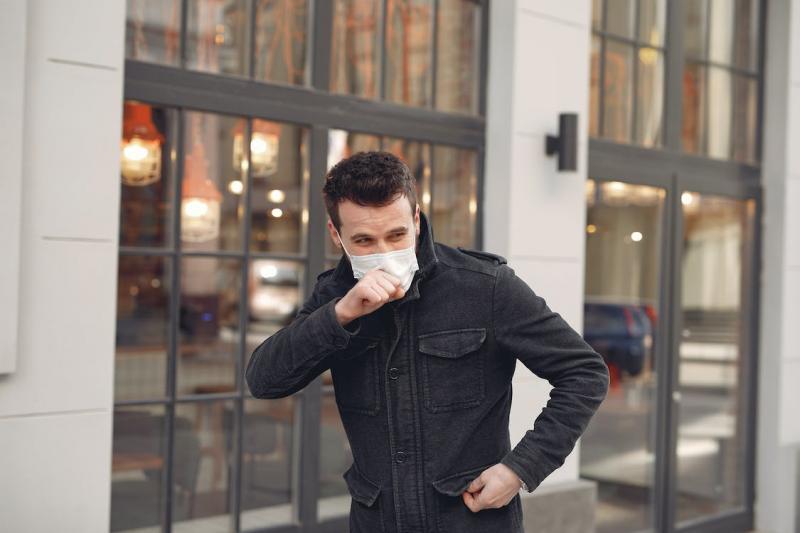How the COVID-19 Pandemic Highlighted Humans Are More Prone to Respiratory Diseases

COVID-19 is a coronavirus that affects the respiratory system. It is highly contagious and can be spread through coughing, sneezing, and touching contaminated surfaces. According to the WHO, there had been 611,421,786 confirmed cases of COVID-19, including 6,512,438 deaths as of 23 September 2022. And this number will fluctuate due to the emergence of new variants in different countries.
In the past few months, we have seen the true extent of how human beings are more prone to respiratory diseases like COVID-19. The virus has mutated to spread easily through coughs and sneezes, making it even more difficult for people who are immune-compromised to avoid getting infected by this dangerous virus.
However, the growing number of respiratory diseases will proportionately increase the demand for doctors that specialize in respiratory diseases. That means a career in respiratory therapy or diseases will be lucrative for anyone looking to alleviate the suffering of masses that are facing respiratory diseases.
Moreover, today’s physicians and aspiring doctors need to carefully examine factors that make humans more prone to respiratory diseases. Here are some of them:
Coronavirus Leads to Massive Hospitalization
The novel coronavirus is spread through contact with bodily fluids, and the most common way to catch it is by having close contact with someone who has it. This means that the virus spreads quickly in crowded places like schools and hospitals, where lots of people are in close contact with each other. In order for a pandemic to happen, there needs to be a lot of people infected at once - otherwise, there wouldn't be enough people to spread the disease around.
This means that as more people get sick and go to the hospital, they're more likely to come into contact with other patients who also have COVID-19 - which increases the chances that more people will get sick and go back into the hospital again. This cycle goes on until everyone has caught it or died from it.
The COVID-19 pandemic has laid bare just how susceptible people are to respiratory illnesses. The coronavirus has led to massive hospitalizations, and it's not just because it's a new virus, but also because humans are more prone to respiratory diseases than other species. As per CDC, coronavirus led to the hospitalization of 392,907 Individuals across all age groups.
A Rise in Air Pollution Have Made Lungs Weaker
The COVID-19 pandemic has highlighted the susceptibility of humans to respiratory diseases. One of the main reasons for this susceptibility is the rise in air pollution.
Air pollution has made human lungs weaker, which increases the risk of contracting respiratory diseases, including COVID-19. The rise in air pollution comes from many different sources, including factories and power plants that burn fossil fuels, cars and trucks that use fossil fuels as fuel, and even manufacturing processes that emit toxic fumes into our environment.
The increase in air pollution has resulted in a decrease in lung capacity, which makes it difficult for us to breathe properly. This means our lungs are not able to filter out harmful particles as effectively as they once did. This can lead to greater susceptibility to respiratory illnesses such as COVID-19.
In fact, the Harvard study is one of many that suggests COVID-19 mortality is impacted by air pollution. A substantial link between air pollution and COVID-19 infection was discovered by researchers studying 120 Chinese cities, and 78% of the coronavirus deaths across 66 locations in Italy, Spain, France, and Germany had occurred in five of the most polluted areas.
Sedentary Lifestyle
It's no secret that humans are more prone to respiratory diseases than animals. But what you might not know is why this is the case.
Humans have a sedentary lifestyle, which means we don't move around very much. We sit all day at our desk jobs, then come home and watch TV or play video games. This has made our lungs weaker and more susceptible to respiratory diseases like COVID-19.
Our lungs are like muscles - they need exercise in order to stay strong and healthy. When you're walking around all day, you're building up your lung capacity - you're strengthening your respiratory system so it can fight off viruses like COVID-19 better than someone who doesn't move around much.
In comparison to patients with COVID-19 who consistently met the recommended levels of physical activity, COVID-19 patients who were persistently physically inactive had a higher risk of hospitalization, ICU admission, and mortality.
Summing Up
The world has seen pandemics before, and the spread of COVID-19 is no exception. But unlike previous pandemics, this one has highlighted a key fact about human beings - we are more prone to respiratory diseases than any other type of infection.
More to Read:
Previous Posts:








